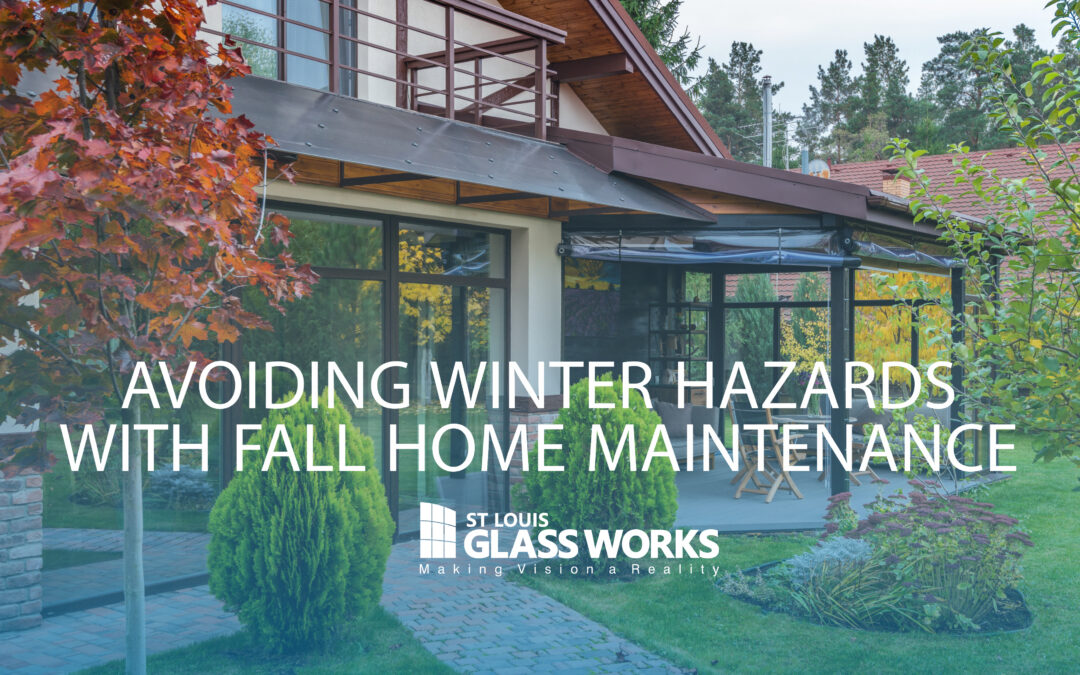Photo credit:Pixabay.com
The beauty of the changing autumn leaves signals more than just a looming weather change. It also serves as a reminder to homeowners to begin preparing their homes for the winter months. Regular maintenance is critical year-round, but as the weather cools down, the number of potential hazards inside the home increases. Taking a few precautionary measures to winterize your home can help prevent a crisis.
Air
While energy efficiency is something to be concerned about at all times of the year, resealing windows and doors is a task usually reserved for the fall. Doing so blocks out the cold winter air and keeps things cozy indoors. There are times when your window seal will fail. This will not only limit the energy efficiency of a window, but it also means that eventually your window will need to be replaced. However, drafts aren’t the only concern when it comes to air, as air quality is also an important consideration.
Most air filters for HVAC systems should be replaced at regular intervals to ensure the system runs optimally. It’s also a good idea to have your system maintenanced at least once a year by a professional. Homeowners should also consider investing in a carbon monoxide detector if they don’t already own one. This colorless, odorless gas can be lethal and affects kids and pets faster than adults. If you do own one, be sure to test it and change the batteries if required.
Fire
The colder months bring an increased risk of fires, primarily due to unmonitored heat sources such as portable heaters, wood stoves, and fire places. HVAC systems, whether electric or gas, can also create a fire hazard if not properly maintained. All heat sources should be inspected and maintenanced before use, and portable heaters and fires should never be left unattended. Make sure your space heaters have a safety shutoff switch in case they are accidentally tipped over.
Having fireplaces and stoves cleaned by a professional chimney sweeper will clear debris or nests prior to use. This is also a good time to replace batteries in smoke detectors throughout the home, maintenance or replace fire extinguishers, and review or revise any fire escape plans for you and your family. If the unthinkable should happen, remember that getting out safely is the most important thing.
Water
While fire certainly poses the most dangerous threat to your home, water damage can wreak havoc as well. A frozen pipe can rupture without notice and potentially turn your home into a lake in a very short time. Cleaning up water damage is difficult but even more so in freezing temperatures. To make matters worse, most insurance policies do not include flood insurance. To avoid the possibility of winter flooding, make sure your home is properly heated, and your heating system is in good working order.
If you plan to travel for the holidays, make sure you turn off as many water sources as possible at the shut-off valve and winterize your pipes properly. Freezing water outside your home can also cause damage. Be sure to remove garden hoses and winterize outdoor spigots. It is also a good idea to trim any limbs or branches that could potentially cause damage to your home during a snow or ice storm.
Avoid surprises that can significantly impact your wallet and your quality of life during the colder months by properly preparing your home for winter. When deciding whether to hire a professional or to do it yourself, consider the potential hazards of doing the task incorrectly.
Remember that demand goes up as temperatures go down, and demand drives costs. Taking time to maintenance your home while the weather is still mild will make it a much easier and less expensive task.

